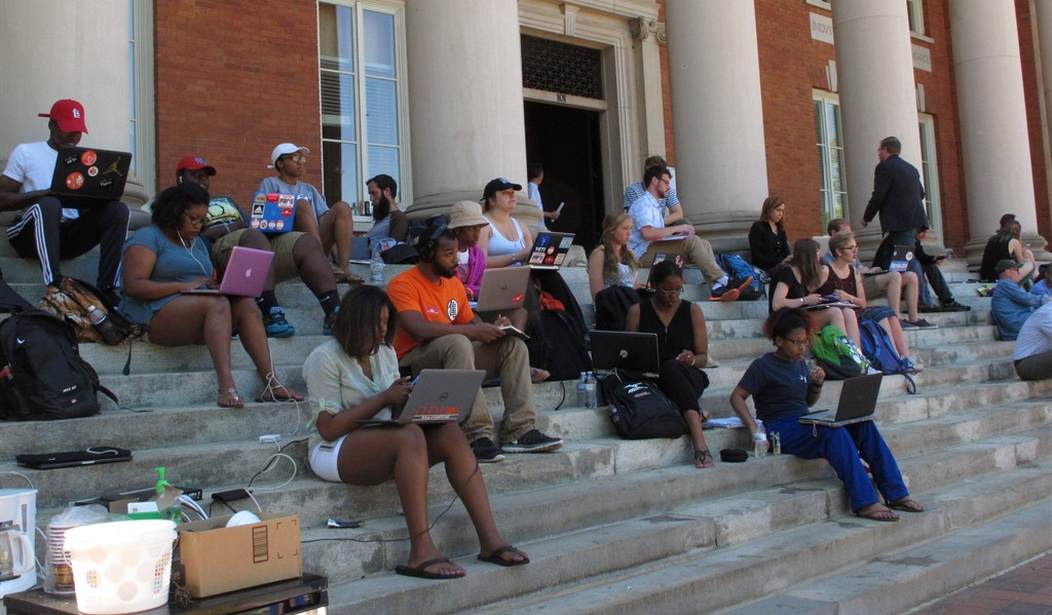Has the great American experiment in diversity ended in failure? That's the impression you might get from an array of recent developments -- Black Lives Matter protests, anti-Muslim sentiment, resentment of undocumented immigrants and, last but not least, Donald Trump. We seem to be loudly fracturing and separating, not coming together. We're all pluribus and no unum.
Trump's embracing of the alt-right movement, which was condemned at length by Hillary Clinton in a recent speech, highlights our apparent racial and religious polarization. His new campaign CEO is also head of Breitbart News, which regularly fans white fears and denounces "multiculturalism."
A characteristic Breitbart story began mournfully, "Four centuries after white Christians landed in Jamestown and settled what would later become America, a report reveals that white Christians are now a minority in the nation their forebearers settled." (They were also a minority then, by the way.)
More mainstream conservatives also fret about the perils of diversity. "Multicultural societies," warned Victor Davis Hanson, a scholar at the Hoover Institution at Stanford University, "usually end up mired in nihilistic and endemic violence."
It's clear from Trump's capture of the Republican nomination that many whites regard demographic diversity as an evil, not a blessing. When he vows to "make America great again," he harks back to a time when the country was more homogeneous.
But the Trump phenomenon is a symptom of growing desperation, not growing strength, among a shrinking faction whose conception of America is obsolete. These people are in a frenzy because they are beginning to realize the battle is lost. Most Americans have come to embrace the inclusion of every race, ethnicity and religion in our society.
Recommended
That wasn't always the case. In 1994, reports the Pew Research Center, 63 percent of Americans said immigrants were a burden. Today 59 percent regard them as an asset. The shift is even more pronounced among young people, 76 percent of whom have a positive view of immigrants.
For many people, racial and ethnic lines are increasingly irrelevant. In 2010, 15 percent of new marriages occurred between partners of different races or ethnicities -- more than double the rate in 1980. "Among all newlyweds in 2010, 9 percent of whites, 17 percent of blacks, 26 percent of Hispanics and 28 percent of Asians married out," reports Pew.
One reason white Christians are a declining share of the population is that more whites are abandoning Christianity. Since 2007, the share of whites with no religious affiliation has risen from 16 percent to 24 percent.
Islamophobia is rife among Trump supporters. Two-thirds of them express negative attitudes toward Muslims. But only one-third of all Americans feel that way. Islamic terrorism has obviously fueled worries and suspicions. Even so, in 2011, 82 percent of American Muslims said they were satisfied with their lives -- which suggests they don't find prejudice to be a major problem.
The biggest source of racial tension is also the oldest one -- the divide between whites and blacks, manifested in economic disparities and broadly different views of law enforcement. Most whites express confidence in police, but only 30 percent of African-Americans share that trust. Though blacks continue to feel they face discrimination, most whites believe they don't.
Other groups, though, have integrated themselves into American society more fully than could have been expected. Asian-Americans, who once faced intense prejudice, are likelier than any other group to intermarry and to live in racially mixed neighborhoods. Their households also have a higher median income than white households.
In a society dominated by racial animosity, you'd see different groups segregating themselves, or being segregated, from others. That's not what is happening.
Scholars John Logan of Brown University and Wenquan Zhang of the University of Wisconsin-Whitewater found that compared with 1980, in the 20 most diverse metropolitan areas, people of every race are likelier to live in "global neighborhoods" inhabited by whites, blacks, Hispanics and Asian-Americans. In these cities, half of whites now live in such areas.
If multicultural societies were prone to intergroup violence, a growing immigrant population would generate more disorder. In fact, Harvard sociologist Robert Sampson has documented, the rise in immigration has produced a sharp decline in crime rates. "The transformed vitality of cities was most visible in the places that had seen the greatest increases in immigration," he wrote in The American Prospect.
Achieving vitality through diversity? In America, that's not a naive dream. It's a solid reality.

























Join the conversation as a VIP Member